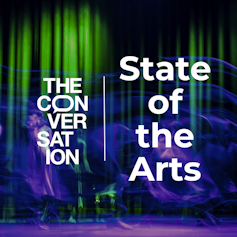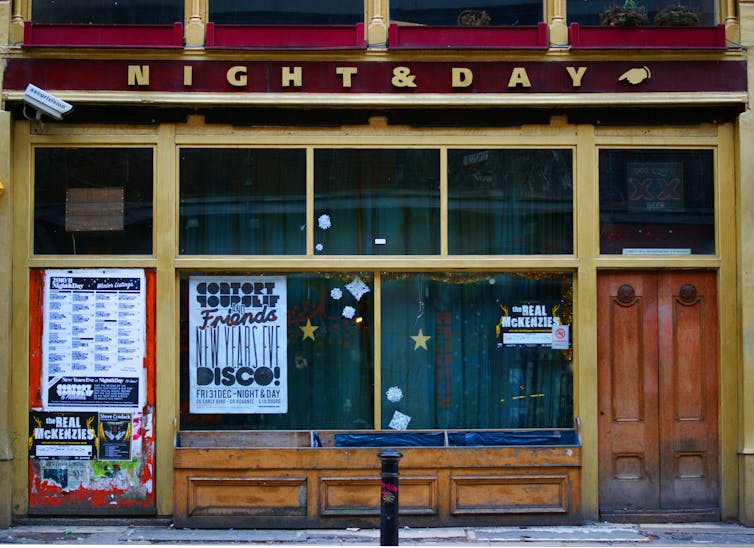With politics now moving into the gladiatorial phase for the general election, it’s easy to forget the huge amount of parliamentary work taken up by cross-party efforts in select committees responsible for overseeing the work of government departments.
The culture, media and sport committee recently produced a report on grassroots music venues – smaller, often independently run spaces – in the last parliament that is likely to be highly relevant to the next government whatever the electoral outcome.

The report was timely. Grassroots venues, a precarious group at the best of times, have been reeling recently from the enduring effects of pandemic lockdowns, alongside huge increases in running costs. Rising energy bills and inflation – including an average rent increase of 37.5% – have put hundreds of venues at risk of closure.
The committee’s inquiry was a short, but urgent, response to this threat. The UK’s live music makes a significant contribution to the economy – £5.2 billion in revenues while employing 228,000 people, according to LIVE, the sector’s representative body.
But there’s more than just the economics of the situation to consider. Grassroots venues are also the training ground for the headline acts of the future – the “research and development” wing of the industry, according to the Music Venue Trust (MVT), which represents grassroots venues specifically. Beyond the economics of the situation, these venues are an important aspect of local cultural life for audiences, adding social value and fostering networks and friendships.
Financial interventions
Drawing on evidence from a range of individual and industry organisations, the report’s conclusions and recommendations are notable for moving in the direction of targeted financial interventions.
In the short-term, there is a proposal for a “targeted and temporary cut to VAT for grassroots venues” to alleviate the immediate financial pressures they are facing. In the longer term, there are suggestions that the government and funding bodies – such as the Arts Council in England – look at how to reduce the administrative load of accessing public funds.
The headline grabbing suggestion, though, was in response to the idea for a levy on tickets at larger venues (such as arenas), supported by the MVT and by creative industries support organisation Creative UK. This would redirect money from larger events towards those that are struggling, using a £1 levy on tickets at major events to create an industry-led fund for the grassroots.
As CEO of the MVT, Mark Davyd, put it, “We need to find a way to really fast track [financial support] so we stop losing venues; honestly, there is plenty of money available.”
Perhaps unsurprisingly, there was some resistance to this from elsewhere in the sector, with the National Arenas Association favouring examples of more bespoke initiatives from bands and venues. One example is the band Enter Shikari, who donated £1 from ticket sales from their 2024 tour, which was matched in funding by ASM Global, which manages arenas like Wembley.
Gary Roden, former executive director of the Co-op Arena in Manchester, criticised a general levy as “too simplistic”, although qualms about whether a levy would support badly run grassroots venues were rather undermined by the well-publicised delays and “chaos” surrounding the opening of the new Co-op Arena itself.

This article is part of our State of the Arts series. These articles tackle the challenges of the arts and heritage industry – and celebrate the wins, too.
A key element of how the proposal progresses would be the level of state involvement and whether the levy would be voluntary, statutory or industry mandated. The CMS committee has shied away from recommending a legal mandate – for now. But it leans heavily towards support for a levy, proposing a voluntary levy on arena and stadium tickets by September 2024, with an assessment of that within 12 months.
The biggest shift in tone comes with the recommendation that if a voluntary levy can’t be agreed, or if the assessment of it concludes that it isn’t raising sufficient support for the grassroots, that “the government should introduce a statutory levy at the earliest subsequent opportunity”.
Agent of change
One area where the report does recommend a legal mandate is in planning regulations, and the “agent of change” principle. This is a measure designed to protect existing uses of buildings in the face of new developments.

It makes whoever is the “agent of change” responsible for managing that change. The principle was included in the National Planning Policy Framework after longstanding campaigning around well-established venues finding themselves on the wrong side of noise complaint enforcements due to new buildings – from residences, to offices or hotels – springing up nearby.
It still isn’t a legal requirement, however, and so the committee’s suggestion that “agent of change principles [be] put on a statutory footing at the earliest opportunity” is another interventionist step.
Select committees don’t make the law. That remains the preserve of government. Yet, because they operate on a cross-party basis, their work can be an indicator of the overall direction of travel within parliament more broadly.
This report suggests both an increasing awareness of the problems facing grassroots venues, and an increased willingness to take active steps to address them. Its focus is on the smaller live venues in particular, but with other matters such as ticket touting, streaming and AI crossing the political radar, this report aligns with a wider sense that the next parliament will also be facing a number of musical concerns, whoever leads it.

